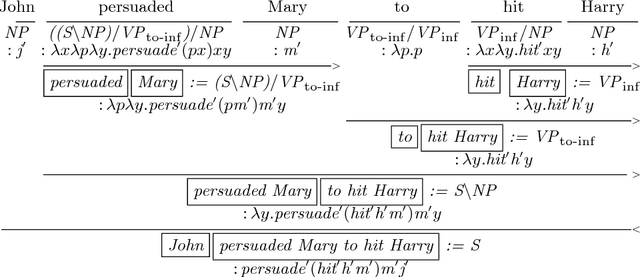Arzu Burcu Guven
Paracompositionality, MWEs and Argument Substitution
May 22, 2018
Abstract:Multi-word expressions, verb-particle constructions, idiomatically combining phrases, and phrasal idioms have something in common: not all of their elements contribute to the argument structure of the predicate implicated by the expression. Radically lexicalized theories of grammar that avoid string-, term-, logical form-, and tree-writing, and categorial grammars that avoid wrap operation, make predictions about the categories involved in verb-particles and phrasal idioms. They may require singleton types, which can only substitute for one value, not just for one kind of value. These types are asymmetric: they can be arguments only. They also narrowly constrain the kind of semantic value that can correspond to such syntactic categories. Idiomatically combining phrases do not subcategorize for singleton types, and they exploit another locally computable and compositional property of a correspondence, that every syntactic expression can project its head word. Such MWEs can be seen as empirically realized categorial possibilities, rather than lacuna in a theory of lexicalizable syntactic categories.
 Add to Chrome
Add to Chrome Add to Firefox
Add to Firefox Add to Edge
Add to Edge